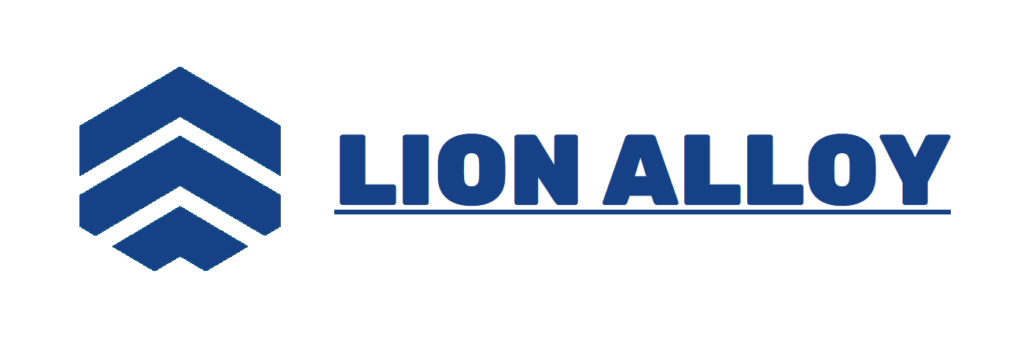Introdução ao produto da liga udimet® 720
A liga UDimet® 720 é uma super-alojada baseada em níquel de alta resistência conhecida por suas excelentes propriedades mecânicas e resistência a ambientes de alta temperatura. Este artigo fornece uma introdução abrangente à liga UDIMET® 720, cobrindo sua composição química, propriedades mecânicas, desempenho em diferentes temperaturas, aplicações da indústria, formas e tamanhos, padrões de produção, recursos de soldagem e processamento, vantagens e desvantagens e uma comparação com ligas semelhantes.
Composição química
A liga Udimet® 720 é composta principalmente por níquel com acréscimos significativos de cobalto, cromo, ferro e outros elementos para aprimorar suas propriedades mecânicas e térmicas:
| Elemento | Composição (%) |
|---|---|
| Níquel (Ni) | 59.0 - 63.0 |
| Cobalto (Co) | 17.0 - 21.0 |
| Cromo (Cr) | 15h00 – 17h00 |
| Ferro (Fe) | 3,0 – 5,0 |
| Molibdênio (Mo) | 1,5 – 2,5 |
| Tungstênio (W) | 0.5 - 1.5 |
| Alumínio (Al) | 0.5 - 1.5 |
| Titânio (Ti) | 0.5 - 1.5 |
| Boro (B) | 0.003 - 0,01 |
| Carbono (C) | 00,08 máx. |
Propriedades mecânicas
UDIMET® Alloy 720 exibe excelentes propriedades mecânicas adequadas para aplicações de alta temperatura:
| Propriedade | Valor |
|---|---|
| Resistência à tração, ksi (MPa) | 170 - 190 (1172 - 1310) |
| Força de rendimento (compensação de 0,2%), ksi (MPa) | 120 - 140 (827 - 965) |
| Alongamento (% em 2 polegadas) | 15 - 20 |
| Dureza, Rockwell C (HRC) | 35 – 40 |
Características de desempenho
UDIMET® Alloy 720 oferece várias vantagens de desempenho:
- Resistência a altas temperaturas: Retém excelentes propriedades mecânicas a temperaturas elevadas de até 1000 ° C (1832 ° F).
- Resistência à oxidação: Fornece boa resistência à oxidação e corrosão de alta temperatura em vários ambientes.
- Resistência à fluência: Exibe alta resistência de fluência, tornando -a adequada para aplicações sob estresse constante em altas temperaturas.
Aplicações Industriais
UDIMET® Alloy 720 é usado em várias indústrias que exigem alto desempenho em condições extremas:
| Setor Industrial | Formulários |
|---|---|
| Aeroespacial | Componentes da turbina a gás, como lâminas de turbinas, palhetas e discos. |
| Geração de energia | Componentes de turbinas a gás e vapor, câmaras de combustão e trocadores de calor. |
| Processamento Químico | Vasos do reator, trocadores de calor e tubos que lidam com produtos químicos corrosivos a altas temperaturas. |
Formas e tamanhos
UDIMET® Alloy 720 está disponível de várias formas e tamanhos para atender aos requisitos específicos de aplicativos:
- Formulários: Chapas, chapas, barras, peças forjadas e arames.
- Tamanhos: Espessuras variando de 0,5 mm a 100 mm para chapas e diâmetros variando de 1 mm a 300 mm para barras redondas.
Padrões de produção
UDIMET® Alloy 720 está em conformidade com os padrões internacionais de produção, garantindo qualidade e confiabilidade:
| Formulário de produto | Formas disponíveis | Tamanhos disponíveis | Padrões de produção |
|---|---|---|---|
| Placas/Folhas | Lençóis, Pratos | Espessura: 0,5 mm – 100 mm | ASTM B637, AMS 5764 |
| Barras/hastes | Barras redondas, barras quadradas | Diâmetro: 1mm – 300mm | ASTM B637, AMS 5764 |
| Forjados | Blocos, discos, anéis | Tamanho: Personalizado | ASTM B637, AMS 5764 |
Soldagem e Processamento
UDIMET® Alloy 720 oferece boas características de soldabilidade e processamento:
- Soldagem: Pode ser soldado usando métodos como TIG, MIG e soldagem por resistência. O pré-aquecimento e o tratamento térmico pós-soldagem podem ser necessários para manter as propriedades.
- Usinabilidade: Geralmente usinado na condição de recozimento em solução usando ferramentas de metal duro e fluidos de corte apropriados.
Vantagens e desvantagens
| Aspecto | Detalhes |
|---|---|
| Vantagens | Alta resistência e resistência a temperaturas elevadas, excelente resistência a oxidação, boa resistência à fluência e disponibilidade de várias formas e tamanhos. |
| Desvantagens | Custo mais elevado em comparação com ligas de níquel padrão, requer processamento e manuseio especializado devido à sua alta resistência e elementos de liga. |
Comparação com ligas semelhantes
UDIMET® Alloy 720 (UNS N07200) é frequentemente comparado com outras superalotas baseadas em níquel de alta resistência, como o Udimet® Alloy 718 e o UDIMET® Lell 625. Aqui está uma breve comparação:
| Tipo/propriedade da liga | UDIMET® liga 720 | Liga UDIMET® 718 | UDIMET® LOLO 625 |
|---|---|---|---|
| Composição química | Níquel alto, cobalto, cromo, com elementos de liga adicionais para força de alta temperatura. | Alto teor de níquel, cromo e nióbio com menores adições de alumínio e titânio. | Níquel alto, cromo e molibdênio com nióbio e tântalo para resistência à força e corrosão. |
| Propriedades mecânicas | Maior resistência à tração e ao escoamento, resistência superior à fluência em altas temperaturas. | A resistência à tração menor e da rendimento em comparação com a liga Udimet® 720, boa resistência e resistência à fadiga. | Resistência à tração e escoamento inferior, excelente resistência à fadiga e boa resistência à corrosão em vários ambientes. |
| Formulários | Turbinas a gás, componentes aeroespaciais que exigem resistência a altas temperaturas e resistência à oxidação. | Componentes aeroespaciais, parafusos de alta temperatura e fixadores. | Equipamentos de processamento químico, aplicações marítimas e componentes aeroespaciais que requerem resistência à corrosão. |
Este artigo detalhado apresenta a liga UDIMET® 720, destacando sua composição química, propriedades mecânicas, características de desempenho, aplicações da indústria, formulários e tamanhos disponíveis, padrões de produção, recursos de soldagem e processamento, além de vantagens, desvantagens e uma comparação com ligas semelhantes. Engenheiros e profissionais que buscam uma super-alojamento robusto e de alta resistência para aplicações exigentes nas indústrias aeroespacial, geração de energia e processamento químico encontrarão UDIMET® LIGOL 720 adequado para uso em condições extremas.


